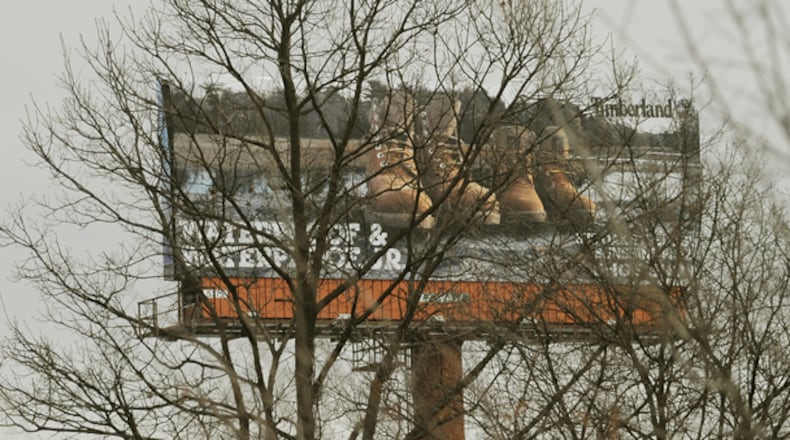A new court ruling has cleared the way for billboard companies to get state approval to cut down trees that block drivers’ view of their signs.
The decision was anticipated following a higher court ruling in May that the state’s plan to expand tree-cutting rights was constitutional. Billboard company lobbyists fought in the General Assembly for years to boost visibility of their signs and succeeded in getting legislation favorable to their cause passed in 2011. But a statewide injunction imposed by Muscogee County Superior Court Judge Frank J. Jordan Jr. on Jan. 17, 2012, blocked the law from taking effect.
Jordan’s decision to lift the injunction on Tuesday allows the Georgia Department of Transportation to begin accepting applications from billboard companies that want to remove tall vegetation on state-owned land alongside highways and interstates.
Conner Poe, executive director of the Outdoor Advertising Association of Georgia, a billboard advocacy group, said it was a win for communities all over the state.
“The law will greatly increase economic growth, as Georgia communities and small businesses can now reach more customers through better advertising opportunities,” Poe said.
But environmental groups who’ve tried to protect the trees along Georgia highways were dismayed.
“We have too many people driving through the state who say they can’t wait to get out of Georgia (because of the billboards),” said Wilton Rooks, executive director of Scenic Georgia. “So we think it is quite serious and works to the detriment of businesses as well as restaurants and the tourist industry.”
The Supreme Court of Georgia ruled in May that the 2011 law to expand tree-cutting rights was constitutional.
The law allowed companies to fell larger, more established trees blocking their signs — trees that had previously been protected. Companies have long been able to cut down smaller trees.
The law was not supposed to take effect until the Georgia Department of Transportation created rules for how it would be implemented. That effort had not been finished at the time the injunction was imposed, said GDOT spokeswoman Natalie Dale.
Shortly after it was enacted, the new law was suspended when the city of Columbus sued with support from environmental groups such as Trees Columbus and the Garden Club of Georgia.
GDOT is still evaluating how to handle 17 applications that were filed by companies seeking to remove trees before the injunction.
There is one caveat to the injunction — it still applies in Muscogee County. The court there is debating whether hardwoods and pines that have been planted to beautify state roadways and interstates in Columbus qualify as a “permitted beautification project,” which would mean they are protected from being cut under the new law.
About the Author
Keep Reading
The Latest
Featured


